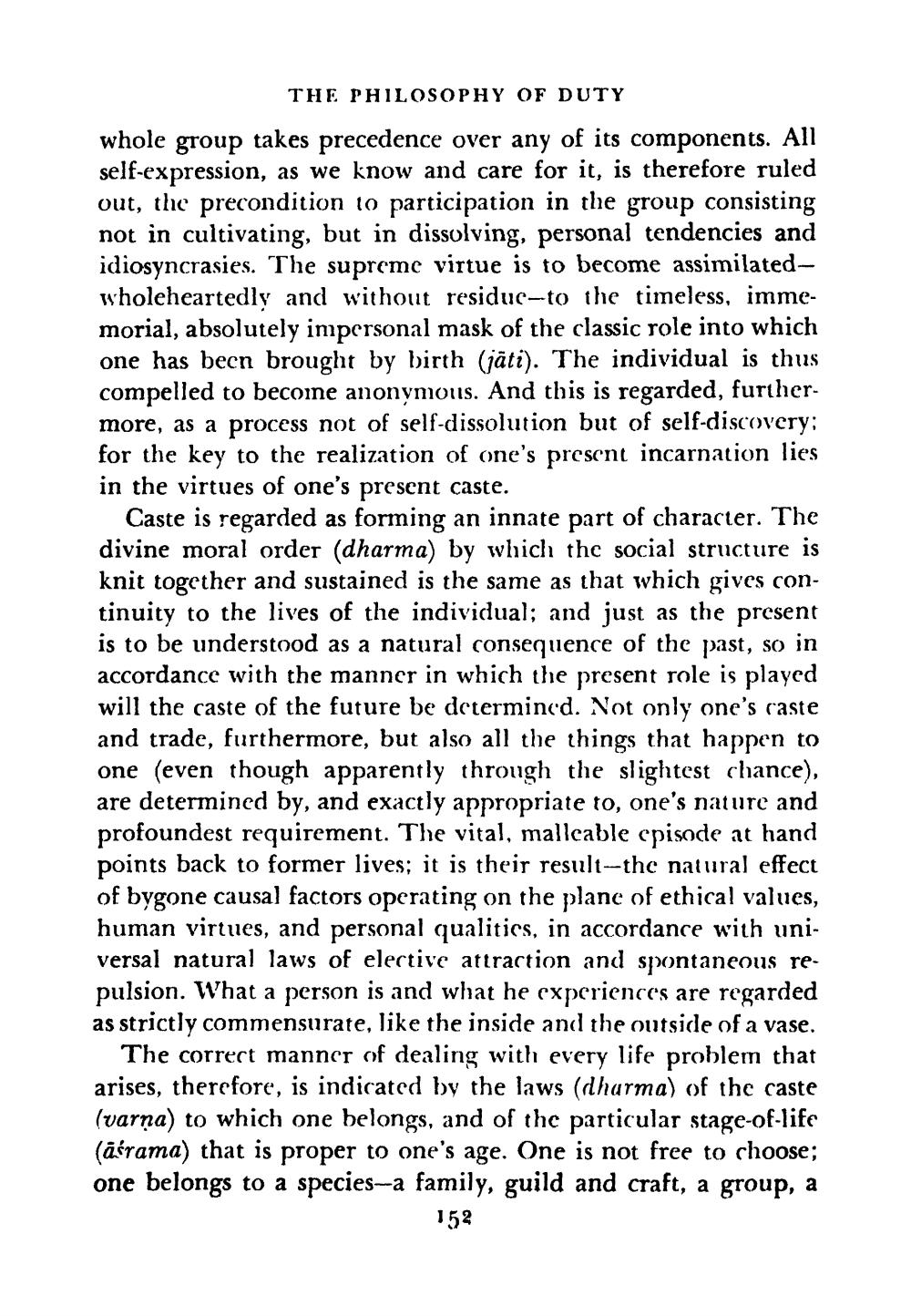________________
THE PHILOSOPHY OF DUTY whole group takes precedence over any of its components. All self-expression, as we know and care for it, is therefore ruled out, the precondition to participation in the group consisting not in cultivating, but in dissolving, personal tendencies and idiosyncrasies. The supreme virtue is to become assimilatedwholeheartedly and without residuc-to the timeless, immemorial, absolutely impersonal mask of the classic role into which one has been brought by birth (jāti). The individual is thus compelled to become anonymous. And this is regarded, furthermore, as a process not of self-dissolution but of self-discovery; for the key to the realization of one's present incarnation lies in the virtues of one's present caste.
Caste is regarded as forming an innate part of character. The divine moral order (dharma) by which the social structure is knit together and sustained is the same as that which gives continuity to the lives of the individual; and just as the present is to be understood as a natural consequence of the past, so in accordance with the manner in which the present role is played will the caste of the future be determined. Not only one's caste and trade, furthermore, but also all the things that happen to one (even though apparently through the slightest chance), are determined by, and exactly appropriate to, one's nature and profoundest requirement. The vital, malleable cpisode at hand points back to former lives; it is their result--the natural effect of bygone causal factors operating on the plane of ethical values, human virtues, and personal qualities, in accordance with universal natural laws of elective attraction and spontaneous repulsion. What a person is and what he experiences are regarded as strictly commensurate, like the inside and the outside of a vase.
The correct manner of dealing with every life problem that arises, therefore, is indicated by the laws (dhurma) of the caste (varņa) to which one belongs, and of the particular stage-of-life (asrama) that is proper to one's age. One is not free to choose; one belongs to a species-a family, guild and craft, a group, a
152




